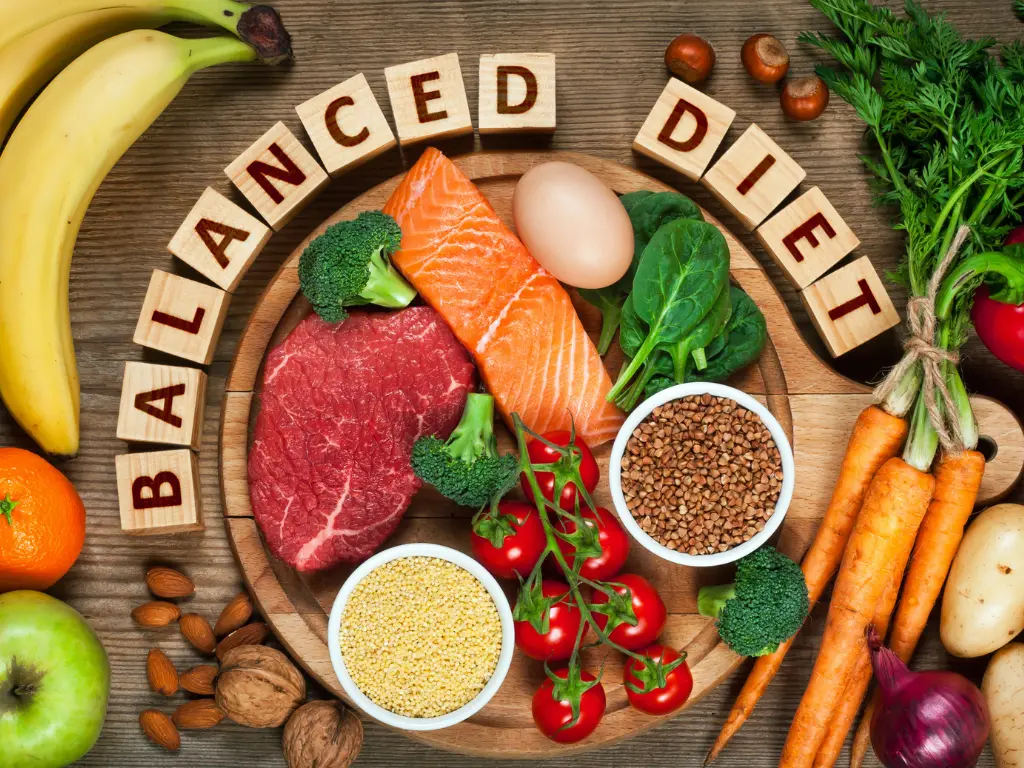Eating a balanced diet is essential for maintaining good health and preventing chronic diseases. A balanced diet consists of foods from all the major food groups in the right proportion. This article will discuss the importance of a balanced diet and how it can benefit your health.
Exploring the Ever-Expanding Universe of Diets
A quick online search can be rather confronting. With so many diets promoted, each with its principles and bold claims, navigating this vast landscape can be a perplexing and overwhelming experience. The abundance of dietary choices, all vying for attention, can intrigue and bewilder individuals.
A sample of the options is shown below:
- Keto Diet: High-fat, low-carbohydrate diet designed to induce ketosis for weight loss.
- Paleo Diet: Focuses on foods presumed to have been available to early humans, emphasizing whole foods and avoiding processed ones.
- Mediterranean Diet: Emphasizes fruits, vegetables, whole grains, fish, and healthy fats like olive oil.
- Vegan Diet: Excludes all animal products, including meat, dairy, and eggs.
- Vegetarian Diet: Excludes meat but may include dairy and eggs.
- Carnivore Diet: Consists primarily of animal products, especially meat.
- Intermittent Fasting: Alternates between eating and fasting periods, such as the 16/8 method.
- Low-Carb Diet: Reduces carbohydrate intake, like the Atkins Diet.
- Low-Fat Diet: Restricts dietary fat intake.
- DASH Diet: Dietary Approaches to Stop Hypertension focuses on reducing high blood pressure.
- Gluten-Free Diet: Eliminates foods containing gluten, primarily for those with celiac disease.
- Zone Diet: Balances macronutrients to regulate insulin levels.
- Whole30: A 30-day plan that eliminates sugar, grains, dairy, and legumes.
- Alkaline Diet: Promotes foods that reduce acidity in the body.
- Cabbage Soup Diet: A short-term weight loss diet centered around cabbage soup.
- Detox Diets: Aim to rid the body of toxins, often through juice fasting.
- Raw Food Diet: Consists of uncooked, unprocessed, and often organic foods.
- Flexitarian Diet: Mainly vegetarian but allows occasional meat or fish.
- South Beach Diet: Emphasizes low-glycemic index foods and healthy fats.
- Pegan Diet: A blend of paleo and vegan diets focusing on whole foods.
Regardless of the myriad diet options available, the most effective one is the one that aligns with your individual needs and preferences. What matters most is selecting a dietary approach that suits your lifestyle and is sustainable in the long term. Sometimes, it may involve integrating elements from various diets or transitioning between different approaches. The essential goal is to strike a balance that ensures you receive the necessary macro and micronutrients while maintaining a healthy body weight.
What is a Balanced Diet?
A balanced diet is a dietary approach that incorporates a diverse range of foods from each of the major food groups. These food groups include:
- Fruits and vegetables: These foods are rich in various vitamins, minerals, and antioxidants, which are essential for maintaining good health. They provide vital nutrients supporting various bodily functions and overall well-being.
- Whole grains: Whole grains are a valuable dietary fiber source, offering several health benefits. Fiber helps promote a feeling of fullness, assists in weight management, and is a simple way to help reduce cholesterol absorption from our gut. Additionally, a diet rich in whole grains has been linked to a reduced risk of chronic diseases like heart disease, diabetes, and certain types of cancer. Incorporating whole grains into your diet can support long-term health goals.
- Lean protein: Lean protein sources include options like poultry, fish, beans, and legumes. Protein is a fundamental nutrient for building and repairing tissues, facilitating muscle growth, and maintaining a robust immune system. Including lean protein in your diet ensures your body receives the amino acids required for various physiological processes.
A balanced diet is characterized by diversity, providing a wide array of nutrients essential for overall health and well-being. It prioritizes a mixture of foods that collectively supply the body with the necessary vitamins, minerals, fiber, and protein to thrive.
Importance of a Balanced Diet
Healthy fats:
These include nuts, seeds, avocados, and olive oil. Healthy fats are essential for maintaining good health and can help reduce the risk of heart disease. Check our Good and Bad Fats article, Separating Fats from Fiction here.
Provides essential nutrients:
A balanced diet provides all the essential nutrients that your body needs to function properly. These include vitamins, minerals, and macronutrients such as carbohydrates, protein, and healthy fats.
- Maintains a healthy weight: Eating a balanced diet can help you maintain a healthy weight by providing the right amount of nutrients and calories your body needs.
- Reduces the risk of chronic diseases: A balanced diet can help reduce the risk of chronic diseases such as heart disease, diabetes, and certain cancers.
- Boosts energy levels: A balanced diet can help boost your energy levels by providing the right balance of nutrients your body needs to function correctly.
- Improves overall health: A balanced diet can help improve your overall health by providing the nutrients your body needs to function properly and fight disease.
The Vital Role of Fiber in Your Diet
Fiber is an indispensable component of a balanced diet, offering a multitude of health benefits:
- Satiety: High-fiber foods help you feel full and satisfied, which can assist in weight management by curbing overeating and snacking between meals. This sensation of fullness is due to fiber’s ability to absorb water and expand in your stomach.
- Digestive Regularity: Fiber plays a pivotal role in maintaining a healthy digestive system. It adds bulk to stool, making it easier to pass and reducing the risk of constipation. Fiber also promotes regular bowel movements, preventing discomfort and digestive issues.
- Cholesterol Control: Soluble fiber, found in foods like oats, beans, and fibrous vegetables, has been shown to lower LDL (bad) cholesterol levels in the blood. By binding to cholesterol molecules in the gut and facilitating their elimination, soluble fiber contributes to heart health.
- Blood Sugar Management: Fiber helps regulate blood sugar levels by slowing glucose absorption from the digestive tract. This can be particularly beneficial for individuals with diabetes or those at risk of developing the condition.
- Gut Health: A diet rich in fiber fosters a healthy gut microbiome. Beneficial gut bacteria thrive on certain fiber types, producing short-chain fatty acids that contribute to gut health and support your immune system.
- Weight Management: Fiber-rich foods are often lower in calorie density, meaning you can eat more with fewer calories. This can be advantageous for individuals looking to maintain a healthy body weight.
Conclusion
A balanced diet is essential for maintaining good health and preventing chronic diseases. Eating foods from all the major food groups in the right proportion can give your body the vital nutrients it needs to function correctly, maintain a healthy weight, optimize cholesterol, and reduce the risk of chronic diseases. If you are concerned about your diet, speak to a healthcare professional or a registered dietitian who can help you create a balanced meal plan that meets your nutritional needs. Ultimately, the best diet is the one that works best for you and supports your journey towards a healthier lifestyle.












